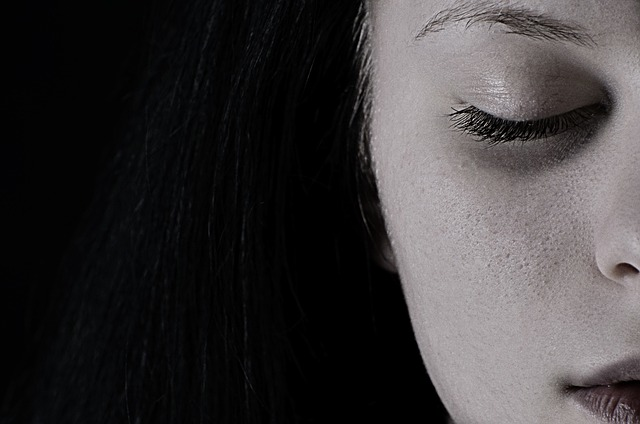
What Helps with Postpartum Depression
Postpartum depression is a serious mental health condition that affects many new mothers. It can cause feelings of sadness, anxiety, and exhaustion that can make it difficult to care for your baby and yourself.
Fortunately, there are many ways to treat postpartum depression and overcoming postpartum depression. This article addresses what postpartum depression is and how to address postpartum depression symptoms.

What is Postpartum Depression?
Postpartum depression also referred to as "PPD" is a type of depression that some mothers experience after giving birth. Postpartum depression is a medical condition that can cause severe mood swings.
Many mothers begin to question their sanity and if they have a mental illness. The physical and emotional health of mothers and their new borns is very important. Postpartum depression typically develops within the first few weeks after giving birth, but it can also develop several months later.
Baby Blues is not Postpartum Depression
Many women who have had children, but have not experienced postpartum depression have had the "baby blues". Baby blues are best described as sadness, moodiness, crying, and trouble sleeping after the birth that can last from two to four weeks. Postpartum blues are different from postpartum depression.
The main difference between baby blues and postpartum depression is the length of time and specific symptoms. Your health care provider can test do a postpartum depression screening. Untreated postpartum depression leaves adult women at an increased risk for psychosis which we will discuss later.
Postpartum Depression Symptoms can Include:
Extreme sadness or feelings of emptiness
Difficulty bonding with the baby
Changes in appetite and trouble sleeping
No energy and feeling tired
Feelings of worthlessness, guilt, inadequacy, being a bad mother
Difficulty concentrating or making decisions
Loss of interest in activities you once enjoyed
Rumination of suicide or dying
Your health care provider and or a mental health provider can help diagnose mild to severe postpartum depression. Pregnant and postpartum women who learned to recognize the risk factors are often able to prevent postpartum depression.

What is Postpartum Psychosis?
Postpartum psychosis also referred to as "PPP" usually develops within the first two weeks after giving birth. Postpartum psychosis is a serious medical condition and mental health disorder that is considered a psychiatric emergency needing immediate medical attention.
The symptoms of postpartum psychosis can be severe and may include:
Hallucinations or delusions
Paranoia and suspiciousness
Rapid mood swings or extreme agitation
Confusion or disorientation
Thoughts of harming oneself or the baby
Thoughts of suicide or infanticide
Postpartum psychosis requires treatment and may involve hospitalization and antidepressant medications to stabilize your mood and manage your symptoms during this postpartum period.
It is important for family members to recognize the signs of postpartum psychosis and seek help immediately to prevent harm to the mother and her baby. If you are in a situation and cannot see a health care professional, call the National Suicide Prevention Lifeline (Lifeline) at 1-800-273-TALK (8255) or use their online chat feature online (Lifeline) at 1-800-273-TALK (8255) or use their online chat feature online

What is the Likelihood of Developing Postpartum Depression?
The likelihood of developing postpartum depression varies for each woman, but research suggests that up to 1 in 7 women experience postpartum depression.
Developing Postpartum Depression Factors:
Personal or family history of major depression or anxiety
Hormone levels changing after giving birth
Lack of social support
Stressful life events or challenges
Medical complications during pregnancy or childbirth
Sleep deprivation and trouble sleeping
With appropriate treatment, PPD can be effectively managed and treated, allowing new mothers to enjoy a healthy and positive experience with their new baby.
How is Postpartum Depression Treated?
Postpartum depression (PPD) can be effectively treated with a combination of different approaches, including therapy, medication, and self-care.
Here are some of the most common treatments for PPD:
Therapy:
Talk therapy, such as cognitive-behavioral therapy (CBT), can help new mothers work through their feelings and emotions related to PPD. CBT helps people identify negative thought patterns and develop new, more positive ways of thinking.
Medication:
Antidepressant medication can be prescribed to help manage symptoms of PPD. Antidepressants work by rebalancing certain chemicals in the brain that can affect mood.
Self-care:
Self-care activities, such as regular exercise, healthy eating, and getting enough sleep, can help new mothers manage their symptoms of PPD. Activities like yoga and meditation can also be helpful for managing stress and anxiety.
Support groups:
Participating in a support group for new mothers with PPD can be helpful, as it provides a safe and supportive environment to share experiences and coping strategies.
Family and friends:
Support from family and friends can be very helpful in managing PPD. Loved ones can offer practical help with the baby and household chores, as well as emotional support and encouragement.
It is important for women to seek help from a healthcare professional if they are experiencing symptoms of PPD, as early intervention can lead to more effective treatment and a better outcome for both the mother and baby.
What is Perinatal Depression?
Perinatal depression is a term used to describe depression that occurs during pregnancy or in the first year after giving birth.
Perinatal depression can take different forms, including prenatal depression, postpartum depression, and postpartum anxiety.
The symptoms of perinatal depression are similar to those of depression at other times, and may include:
Persistent feelings of sadness or hopelessness
Loss of interest in activities that were previously enjoyable
Fatigue and lack of energy
Changes in appetite and sleep patterns
Difficulty concentrating or making decisions
Feelings of guilt, worthlessness, or inadequacy
Thoughts of death or suicide
1 in 5 women experiencing some form of perinatal mood or anxiety disorder which can have serious consequences for both the mother and baby.
What are Selective Serotonin Reuptake Inhibitors?
Selective serotonin reuptake inhibitors (SSRIs) are a type of medication used to treat depression, anxiety, and other mental health disorders. SSRIs work by increasing the level of the neurotransmitter serotonin in the brain, which can improve mood and reduce symptoms of depression and anxiety.
SSRIs are a type of antidepressant medication that is commonly used to treat major depressive disorder, anxiety disorders, obsessive-compulsive disorder (OCD), and post-traumatic stress disorder (PTSD). Some common SSRIs include fluoxetine (Prozac), sertraline (Zoloft), citalopram (Celexa), and escitalopram (Lexapro).
SSRIs are considered a first-line treatment for depression and anxiety because they are generally safe and well-tolerated, and have fewer side effects than older types of antidepressants. However, like all medications, SSRIs can have side effects, including nausea, headache, and sexual dysfunction. It is important for individuals to discuss the risks and benefits of SSRIs with a healthcare professional, and to be monitored for any potential side effects while taking these medications.
Seek Professional Help
The first step in treating postpartum depression is to seek professional help. Talk to your doctor or a mental health professional about your symptoms and get a diagnosis. They can help you find the right treatment plan for your needs. Treatment may include counseling, medication, or both.
Connect with Other Mothers
It can be helpful to connect with other mothers who have experienced postpartum depression. Talking to someone who understands what you’re going through can be a great source of support and comfort. You can find support groups online or in your local community.
Practice Self-Care
Self-care is an important part of managing postpartum depression. Make sure you’re getting enough rest, eating healthy meals, and exercising regularly. Take time for yourself each day to do something that brings you joy, such as reading a book or taking a walk.
Set Realistic Goals
It’s important to set realistic goals for yourself when you’re dealing with postpartum depression. Don’t expect too much of yourself or put too much pressure on yourself to be perfect. Focus on small goals that you can achieve each day and celebrate your successes.
Find Ways to Relax
Stress can make postpartum depression worse, so it’s important to find ways to relax and reduce stress levels. Try activities like yoga, meditation, or deep breathing exercises. You can also try listening to calming music or taking a warm bath.
Ask for Help
Asking for help is an important part of managing postpartum depression. Don’t be afraid to reach out to family and friends for support. They may be able to help with childcare or household tasks so that you can take some time for yourself.
Take Time for Yourself
It’s important to take time for yourself when you’re dealing with postpartum depression. Make sure you’re getting enough rest and taking breaks throughout the day. Spend time doing activities that bring you joy, such as reading a book or going for a walk. Postpartum depression is a serious condition that requires professional treatment and support from family and friends. With the right treatment plan and self-care practices, it is possible to overcome postpartum depression and enjoy motherhood again.




